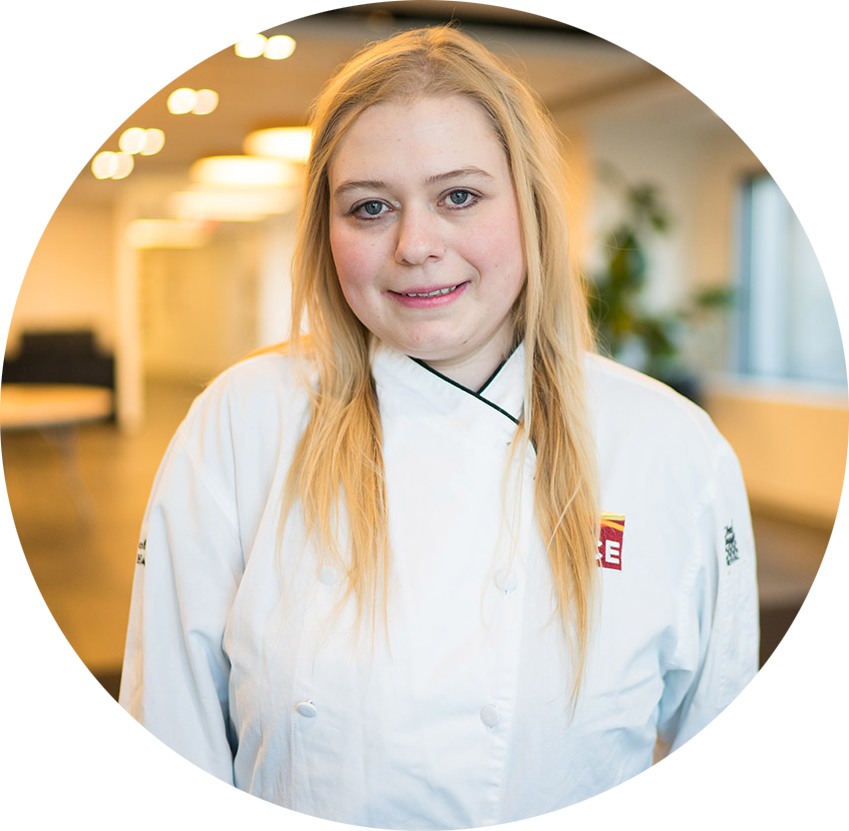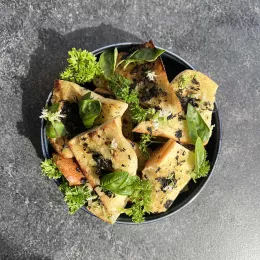This summer in ICE New York’s Fermentation Lab, we have been experimenting with different flavors of a traditional Korean fruit syrup called cheong.
The general concept lies in combining an equal amount (by weight) of both fruit and sugar, as well as some fresh-squeezed lemon juice and allowing the mixture to mature under refrigeration for one week. (Stirring occasionally is recommended.)
The process is, for the most part, hands-off, and the result is a vibrant and flavorful fruit syrup that has not been dulled by the usual cooking process.
What you need to know before making cheong:
- It’s important to cut your fruit into small, even pieces so that they have exposure to the sugar and release a large amount of moisture.
- The addition of acid in the form of lemon juice helps inhibit bacteria growth, enhances the flavor and makes the resulting syrup color more pronounced.
- Experiment with adding flavorings that pair well with the fruit you are using. In the lab, we used lemongrass, ginger, jalapeño, habanero and vanilla pods.
- Stir and taste the syrups every few days to help any remaining sugar dissolve and to determine when you are happy with the flavor.
- When you strain the fruit out of the syrup mixture, repurpose it for smoothies, muffins, pancake toppings, charcuterie boards or cocktails.
How To Use Your Cheong/Fruit Syrup:
- Ice Cream Floats
- Shaved Ice
- Cocktails
- Sorbets
- Pancakes & Waffles
- Flavored Seltzer
- Sweetened Iced Teas
- Sweet Glaze For Proteins
- Fun Addition To Charcuterie Boards
- Topping For Crusty Ricotta Toast
More like this: A Beginner's Guide to Brewing Kombucha






